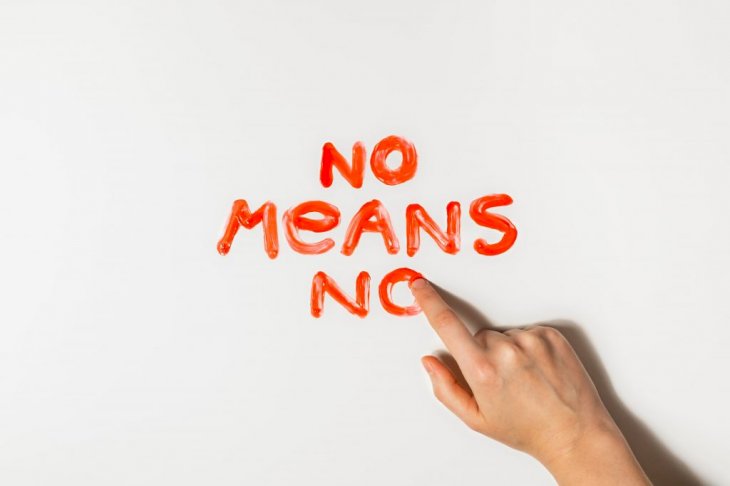
Exploring The Importance Of Boundaries & How To Set Them
Sometimes your personal relationships can become overwhelming, and your friends, family, and even your partner can cross a line that makes you feel uncomfortable. But how do you say the word “no”?
Boundaries help protect you in all of your relationships, and sometimes when you’re close to someone, the line can get blurry. Sometimes when the people in your life don’t respect your boundaries, it can lead to stress.
There isn’t a rulebook of life to teach you how to set up your boundaries or respect others. However, you can always learn about them and implement them into your life.
Why Are Boundaries Important?

Shutterstock
Boundaries are like invisible lines we expect the people in our lives to stay on the other side of. But because they’re invisible other people might tiptoe close to the line and make us uncomfortable.
These boundaries protect us emotionally and physically and keep us from being taken advantage of. But they don’t create distance; they actually help bring you close to the people around you!
By putting yourself first, you open yourself up to opportunities that leave you feeling comfortable and respected. They also give you time and energy to focus and improve yourself and can help you respect other people’s boundaries!
Where Should You Have Boundaries?

Photo by Priscilla Du Preez on Unsplash
You should have boundaries in every relationship in your life, from work to family to partners. It helps keep you safe and comfortable while also allowing you to grow.
These boundaries can be physical, emotional, time-related, sexual, and intellectual. When something in these areas of your life feels uncomfortable, you know you should set up a boundary or voice it to be addressed.
1. They’re Flexible

Shutterstock
They don’t have to be written down in permanent ink because it’s not always a hard and fast rule. But you also don’t want to create a boundary that’s too flexible either.
Setting boundaries that aren’t flexible can leave you isolated or even avoiding intimacy in your relationships. For example, if you’re not comfortable with touch, that’s fine, but you might make exceptions for your partner or friends.
2. What Are Your Values

Unsplash
Think of values you find important and how and if others have disrespected them in the past. You can use these to create a boundary that you want to be respected by those in your life.
Also, take into consideration that your values might not align with everyone you meet. So if someone uses offensive language, you might want to voice that it makes you uncomfortable.
If they respect your boundaries, they’ll refrain from using such language. If they try to make excuses to get around it, you’ll have to reconsider the boundary or the relationship.
3. Listen To Your Gut

Shutterstock
When something doesn’t sit right with you, your gut will let you know. It can be an indication of a violated boundary or needing to set up a boundary.
Listen to your body, heart rate, stomach, and throat will tell you all you need to know about how comfortable you are. So if someone says something inappropriate, your body will react to let you know.
4. Learn To Say No

Shutterstock
Sometimes when you tell someone “no,” they can get upset, stand your ground, and don’t let them have their way. You don’t have to do it in a mean way; you can be firm but friendly, like “I don’t like when you yell when you’re angry.”
You don’t always have to have a reason; sometimes, you can just say “no.” and let it be the end of the conversation. You don’t have to justify why you don’t want to smile, and the people around you should respect that!
5. Ask For Help

Shutterstock
If you’re dealing with someone who doesn’t respect your boundaries and keeps crossing the lines no matter how assertive you are, you might need backup. You may even need backup when you’re too weak to be setting up your own boundaries.
So if your mom has trouble letting you be an adult, you might need your siblings, your dad, or even an aunt or uncle to help you talk to her. If it becomes a real issue, you might want to involve a mental health professional.